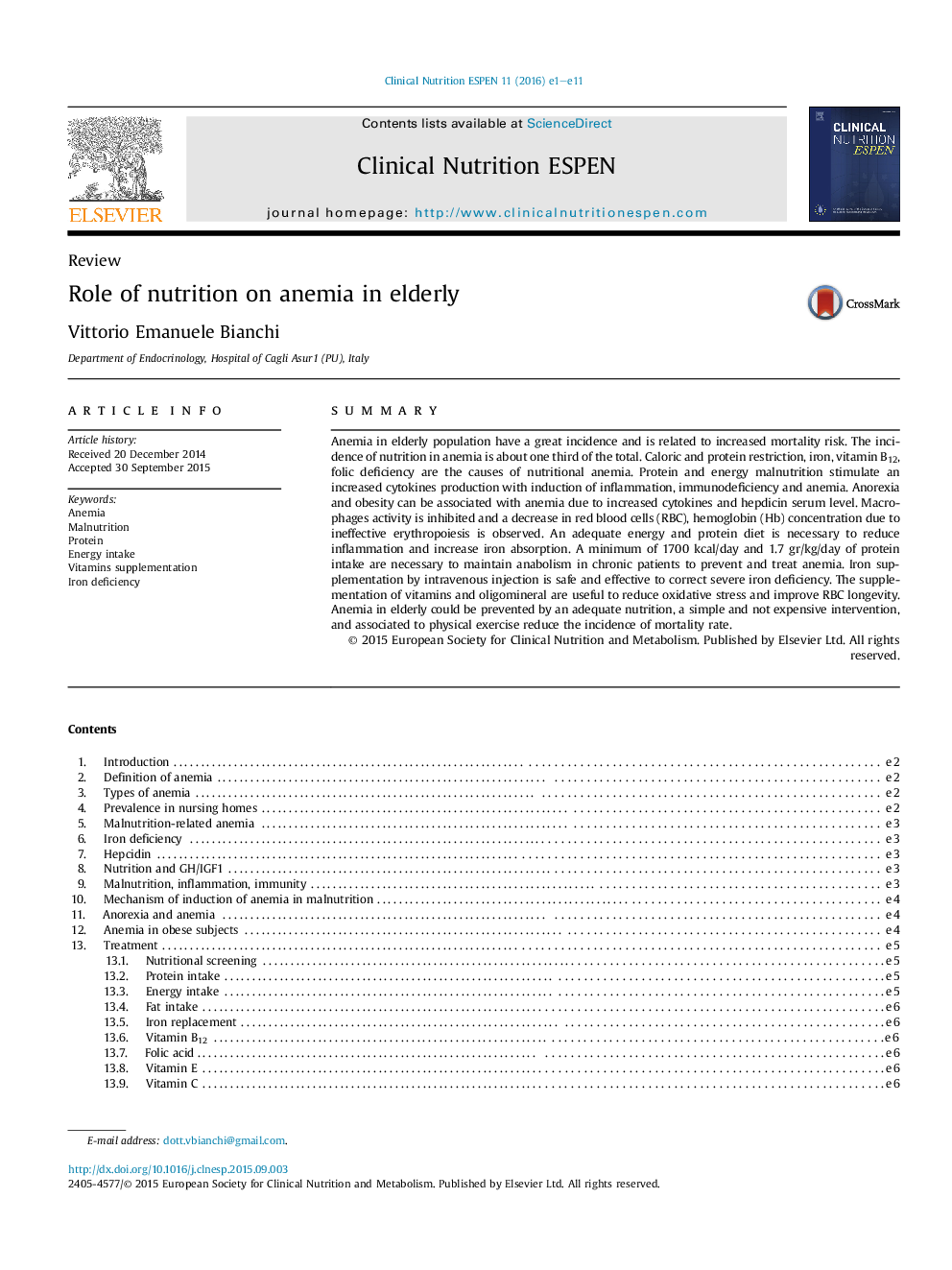| Article ID | Journal | Published Year | Pages | File Type |
|---|---|---|---|---|
| 2688928 | Clinical Nutrition ESPEN | 2016 | 11 Pages |
SummaryAnemia in elderly population have a great incidence and is related to increased mortality risk. The incidence of nutrition in anemia is about one third of the total. Caloric and protein restriction, iron, vitamin B12, folic deficiency are the causes of nutritional anemia. Protein and energy malnutrition stimulate an increased cytokines production with induction of inflammation, immunodeficiency and anemia. Anorexia and obesity can be associated with anemia due to increased cytokines and hepdicin serum level. Macrophages activity is inhibited and a decrease in red blood cells (RBC), hemoglobin (Hb) concentration due to ineffective erythropoiesis is observed. An adequate energy and protein diet is necessary to reduce inflammation and increase iron absorption. A minimum of 1700 kcal/day and 1.7 gr/kg/day of protein intake are necessary to maintain anabolism in chronic patients to prevent and treat anemia. Iron supplementation by intravenous injection is safe and effective to correct severe iron deficiency. The supplementation of vitamins and oligomineral are useful to reduce oxidative stress and improve RBC longevity. Anemia in elderly could be prevented by an adequate nutrition, a simple and not expensive intervention, and associated to physical exercise reduce the incidence of mortality rate.
